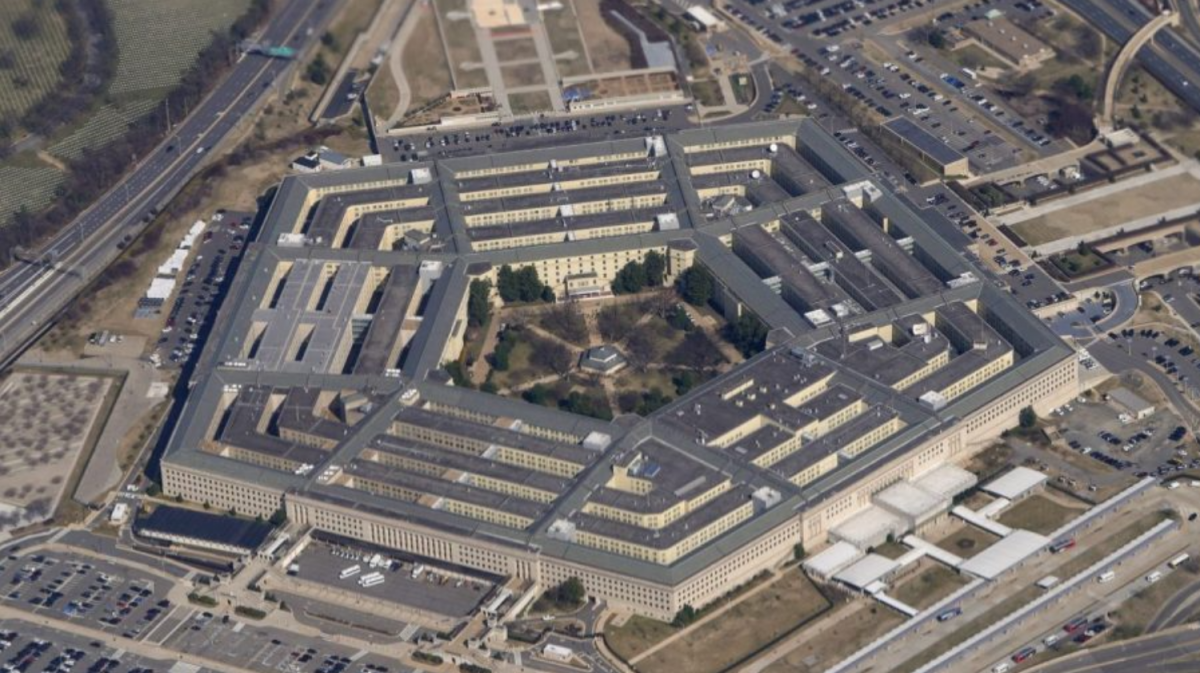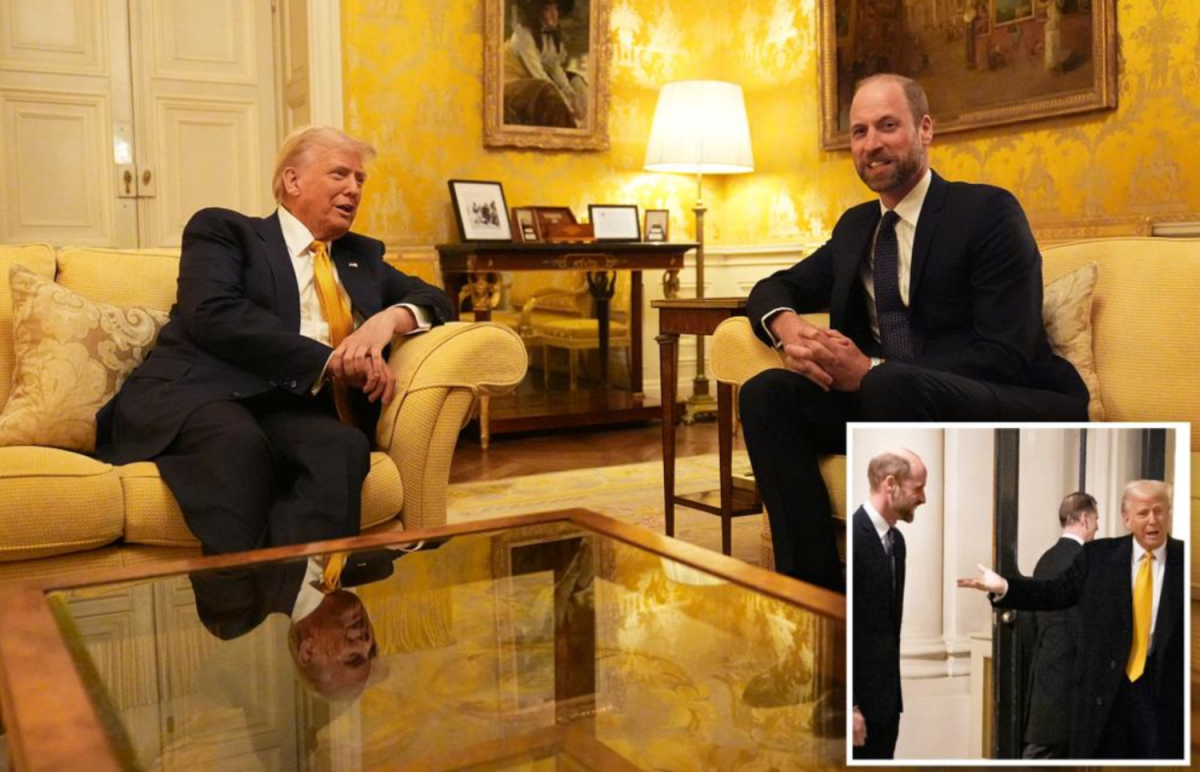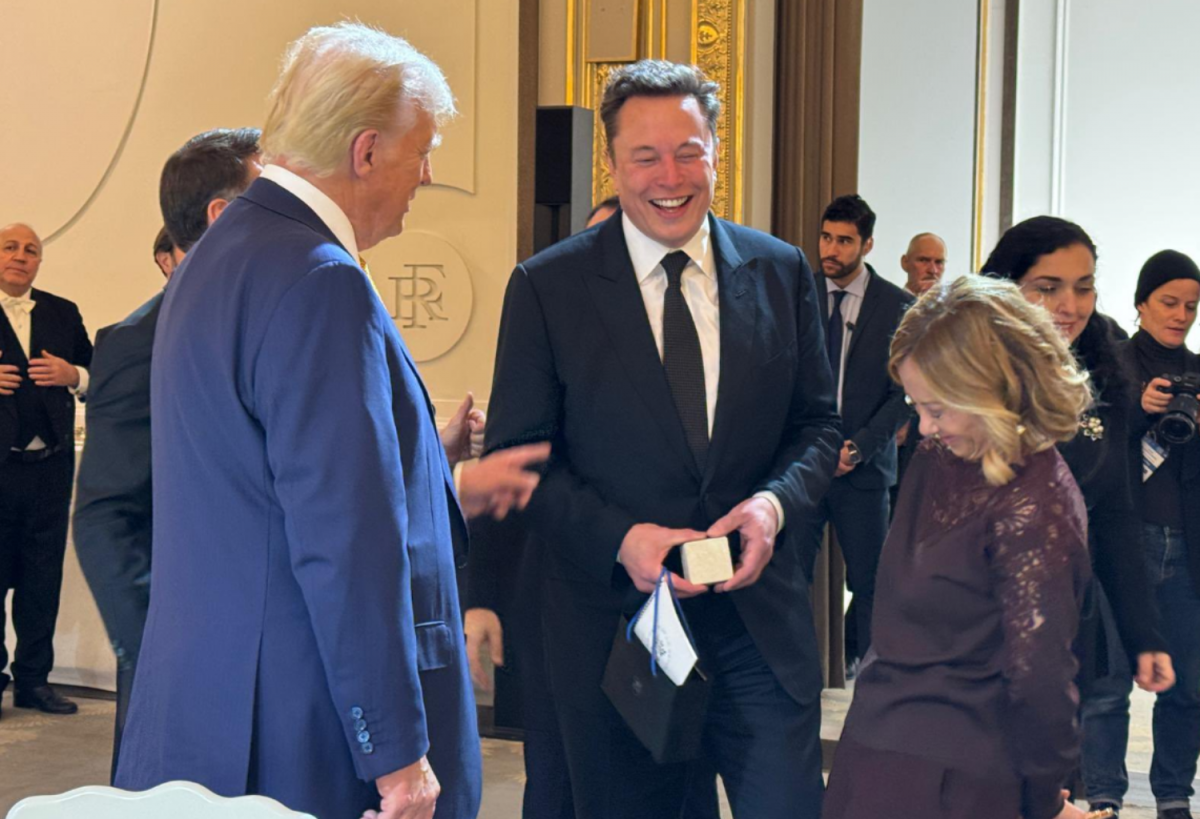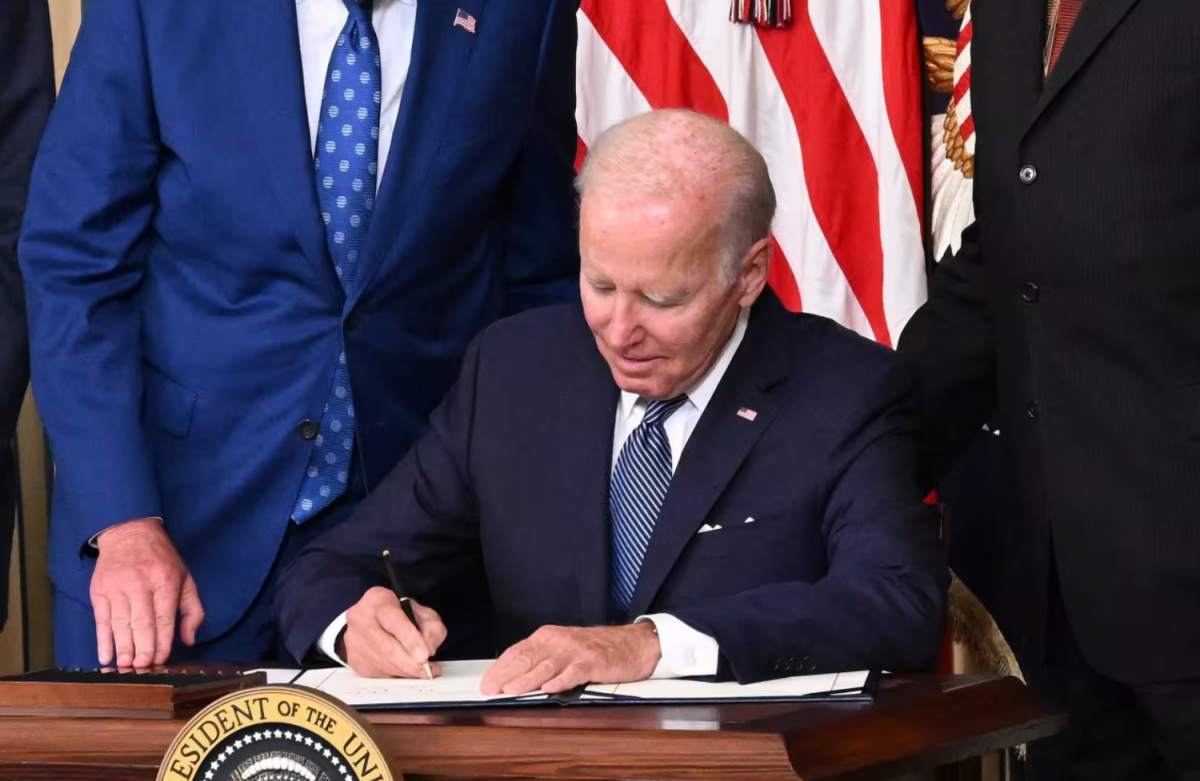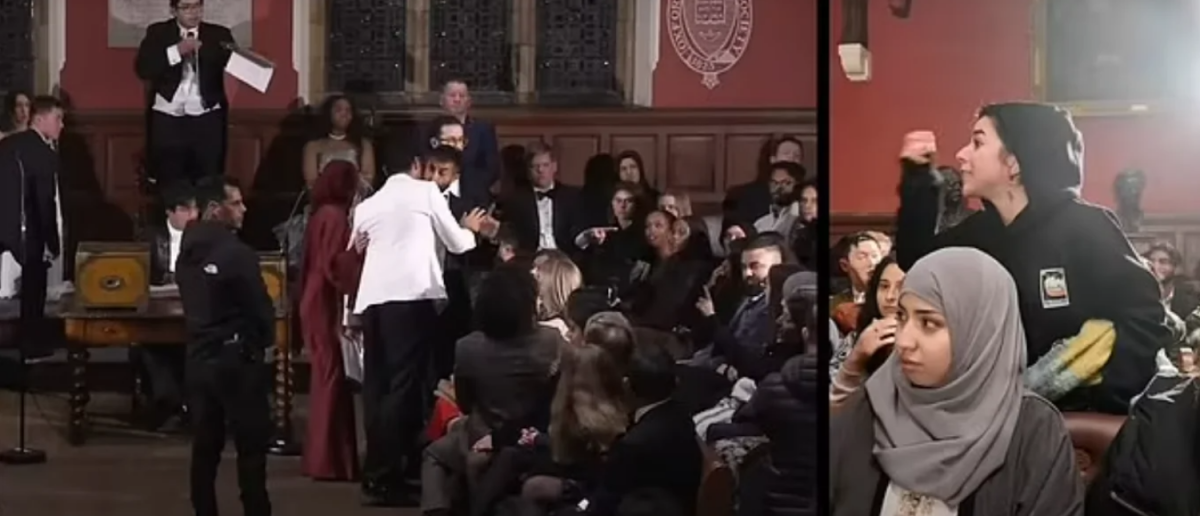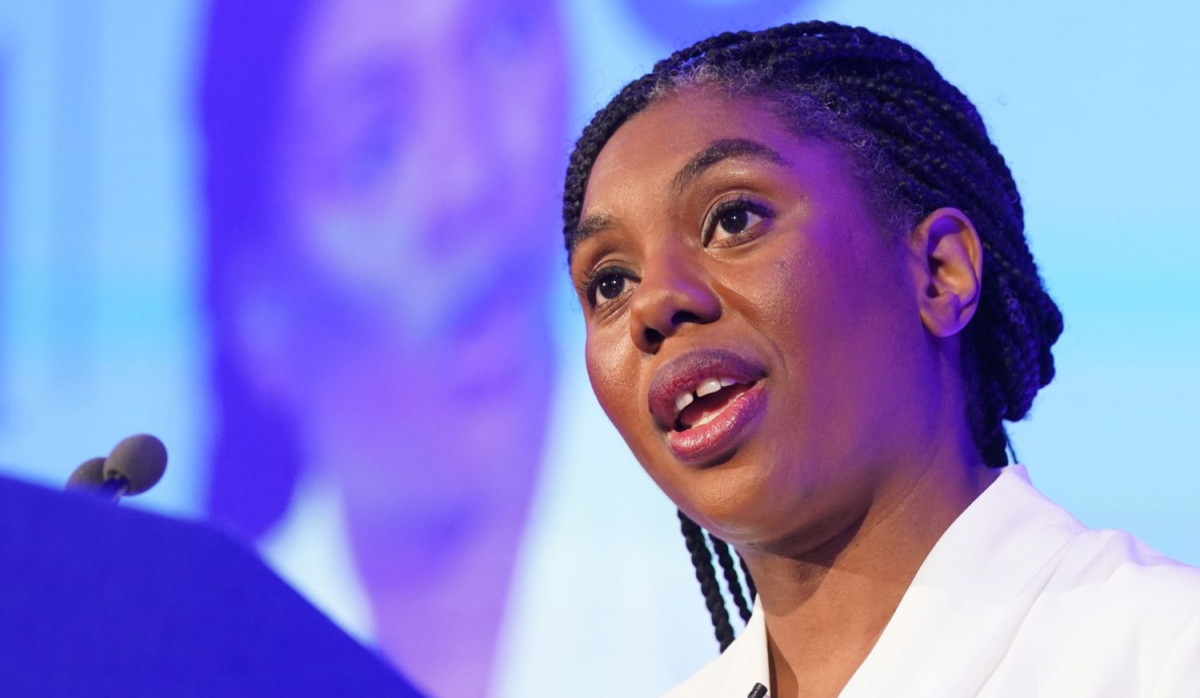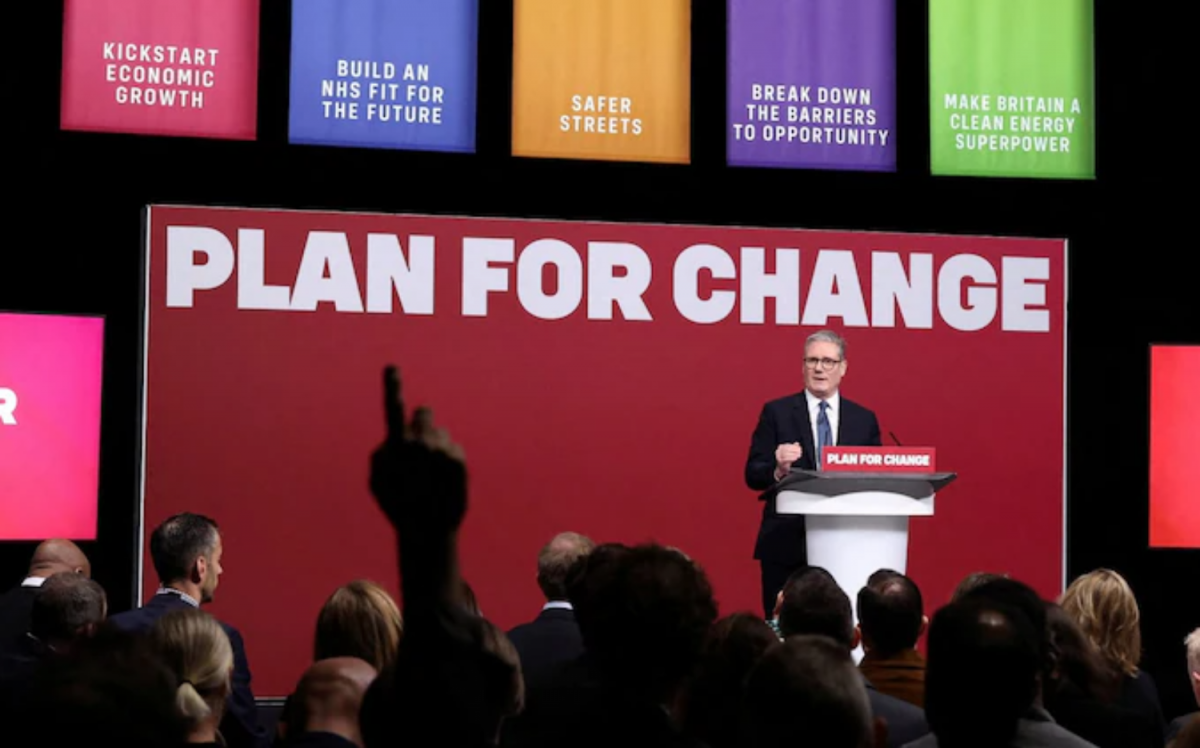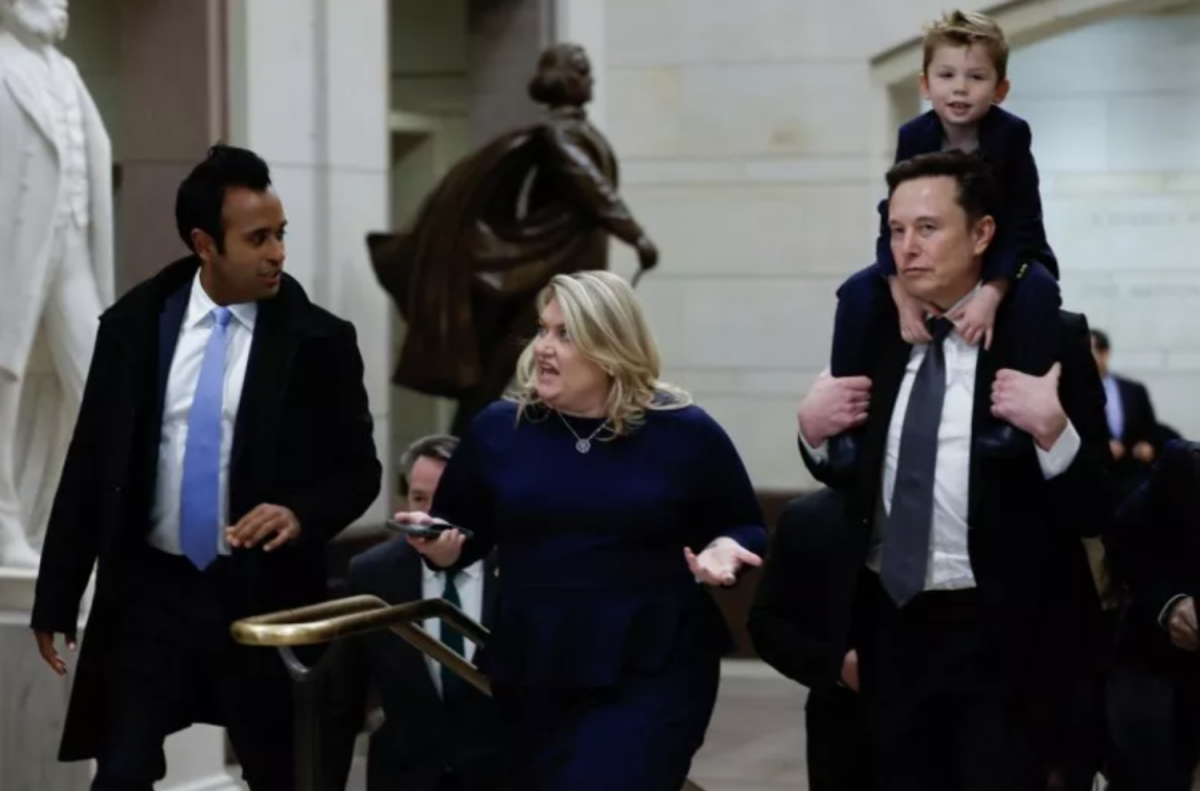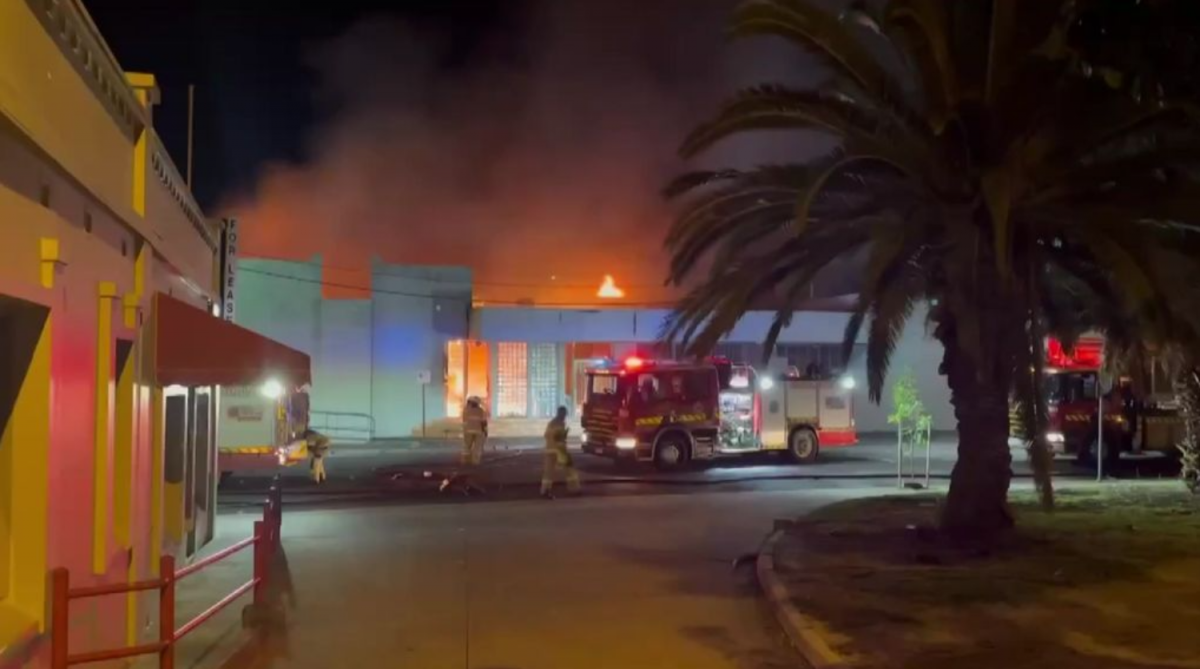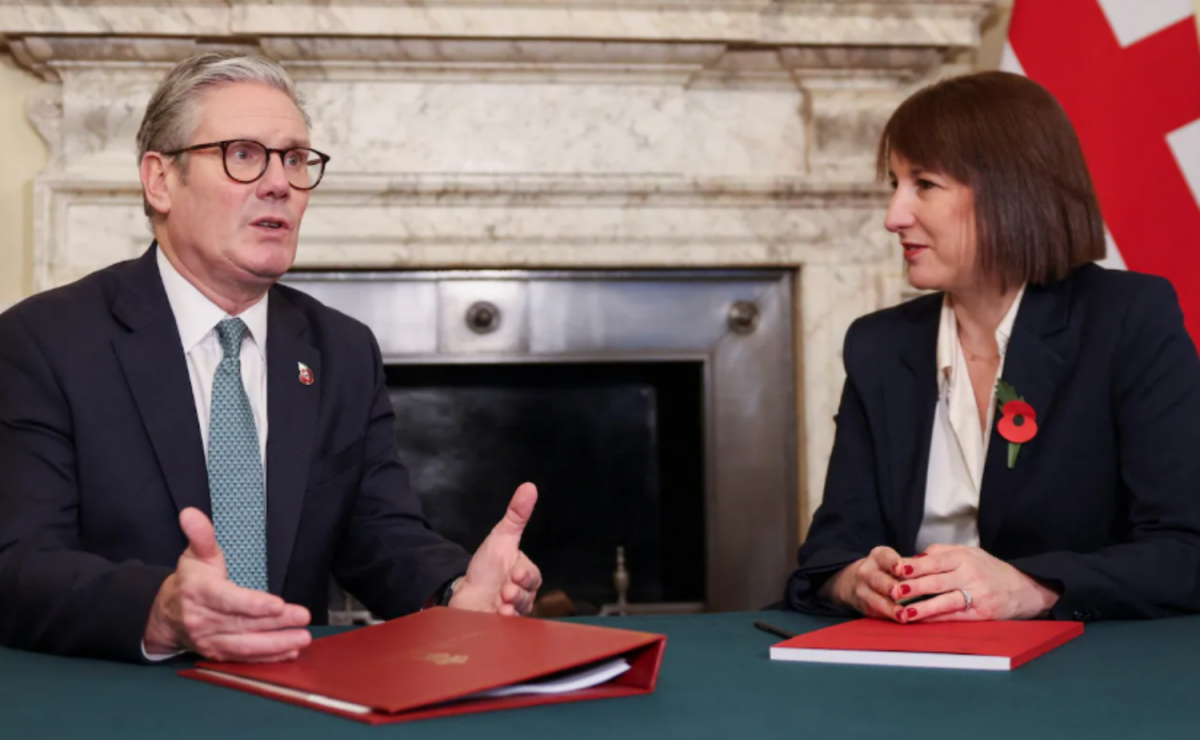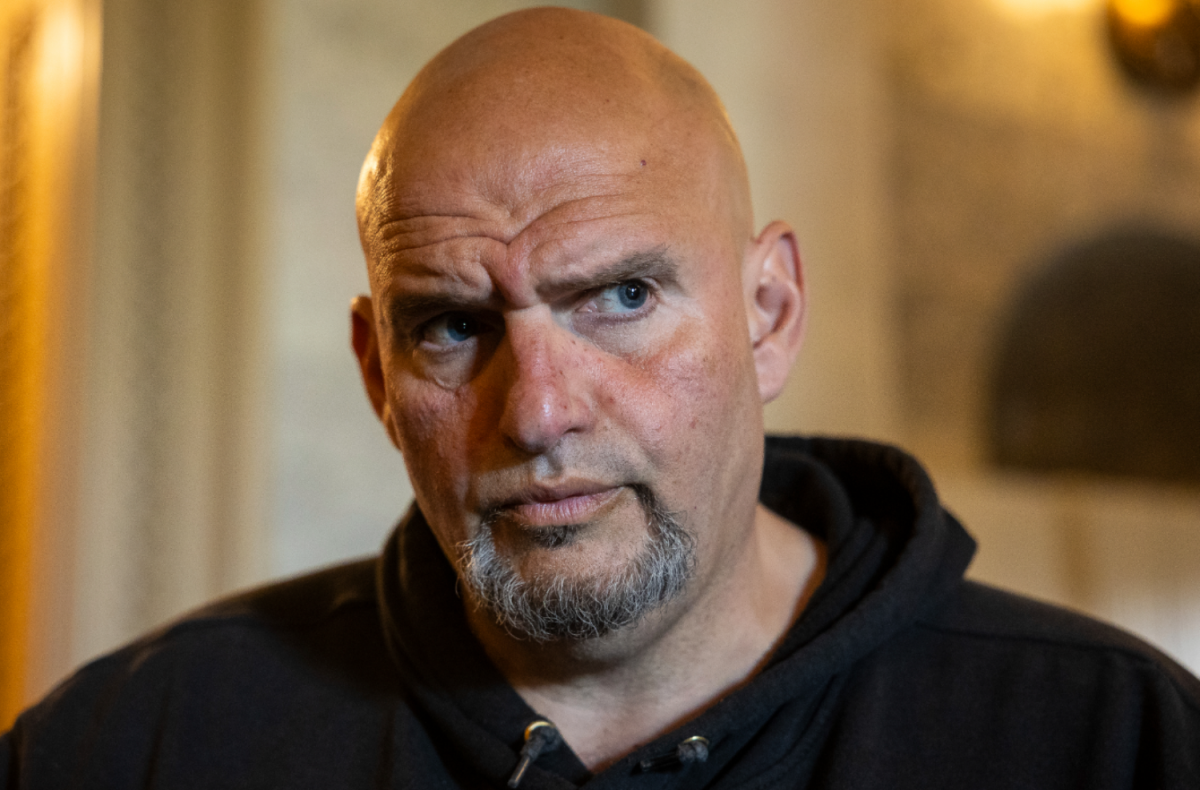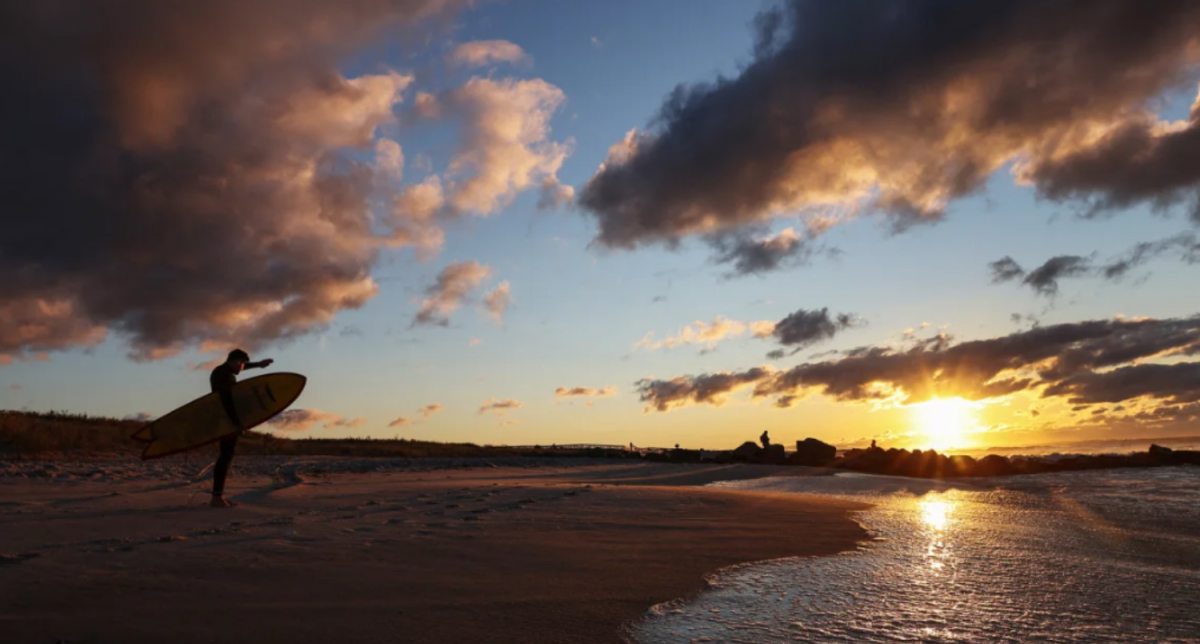-
Posts
10,806 -
Joined
-
Last visited
Content Type
Events
Forums
Downloads
Quizzes
Gallery
Blogs
Everything posted by Social Media
-
After decades of denial and obfuscation, the Pentagon has made a surprising and candid admission: it is baffled by certain UFO incidents. This marks a monumental shift in tone, moving from decades of dismissiveness to acknowledging the mystery surrounding these phenomena. In a recent press briefing, Jon Kosloski, director of the Pentagon's All-domain Anomaly Resolution Office (AARO), confessed that several UFO cases defy explanation, even with advanced expertise in physics and engineering. Kosloski stated, *“There are interesting [UFO] cases that I, with my physics and engineering background and time in the [intelligence community], I do not understand. And I don’t know anybody else who understands them either.”* He emphasized the need for collaboration, saying, *“We’re going to need the help of academia and the public to address some of these.”* Such transparency is unprecedented. For nearly 80 years, official statements on UFOs have ranged from dismissive to evasive, offering little more than assurances that there was "nothing to see." This recent openness underscores just how perplexing certain incidents have become for military and intelligence officials. Secretary of Defense Lloyd Austin echoed this sentiment, acknowledging, *“There are things that happen, that have happened and probably will continue to happen that are difficult to explain.”* These remarks align with revelations from former presidents, intelligence officials, and military personnel, who have in recent years admitted the existence of advanced technologies in UFO encounters that exceed current human capabilities. For instance, a former CIA director suggested that a "different form of life" might be responsible for these phenomena, while a former director of national intelligence acknowledged that UFOs display capabilities *“that we don’t have and, frankly, that we are not capable of defending against.”* Adding to the intrigue, Senate Majority Leader Chuck Schumer and Senator Mike Rounds have introduced legislation asserting the existence of secretive government programs attempting to reverse-engineer UFOs of non-human origin. The proposed legislation, known as the Unidentified Anomalous Phenomena Disclosure Act, includes extraordinary provisions. It mandates government possession of recovered objects and biological evidence of "non-human intelligence." The term "non-human intelligence" itself is explicitly defined and appears over 20 times in the act, signifying the gravity of these claims. Former Department of Defense officials Luis Elizondo and David Grusch have testified under oath about such programs. Grusch, during a July 2023 congressional hearing, detailed a "multi-decade [UFO] crash retrieval and reverse-engineering program." His allegations were deemed "credible and urgent" by the intelligence community’s internal watchdog, triggering mandatory congressional notifications. Grusch's attorney, notably, is the intelligence community’s first inspector general, lending substantial credibility to his claims. Support for these allegations extends to prominent political figures. Senator Marco Rubio revealed that senior government officials with firsthand knowledge have approached Congress about UFO retrieval programs. Similarly, Kirk McConnell, a veteran congressional staffer, confirmed that individuals with direct experience have shared their knowledge with legislative committees. Despite these revelations, the Pentagon's UFO analysis office faces significant credibility challenges. For example, Kosloski presented a flawed assessment of the “GoFast” UFO video, neglecting to interview the pilots who recorded the footage. This omission overlooked critical details, including the object's apparent formation flight with other unknown objects and its lack of visible propulsion. Such oversights undermine confidence in the office’s conclusions, particularly when these incidents raise serious flight safety concerns for military personnel. While the Pentagon's newfound openness is a promising step forward, these analytic lapses highlight the substantial work needed to rebuild public trust. The shift from ridicule to genuine inquiry is a welcome change, but the road to uncovering the truth about these mysterious phenomena remains long and uncertain. Based on a report by The Hill 2024-12-09
-
President-elect Donald Trump and Prince William, the Prince of Wales, came together in Paris on Saturday following the ceremonial reopening of the Notre Dame Cathedral. Trump, known for his admiration of British royalty, described Prince William as a “great man” during their encounter. As they posed for photographs in the residence’s foyer, Trump expressed his admiration for the Prince of Wales, stating, “Great man this one. He’s going to do a fantastic job.” Their meeting was characterized as “warm and friendly” by Kensington Palace, with discussions spanning a range of global issues. Both leaders emphasized the enduring importance of the UK-US special relationship. During the meeting, Trump also shared personal memories of the late Queen Elizabeth II, which Prince William received with gratitude. Kensington Palace acknowledged Trump’s reflections, noting the Prince’s appreciation for the sentiments expressed. This meeting marked a continuation of Trump’s engagement with the British royal family, following his 2019 state visit to the United Kingdom. At that time, he met with the late Queen Elizabeth II, an encounter he described with great fondness. The symbolic occasion of Notre Dame’s reopening provided a backdrop for the reaffirmation of the historic bond between the United States and the United Kingdom, underscoring the shared respect and camaraderie between their leaders. Based on a report by NYP 2024-12-09
-
On a historic Saturday in Paris, the resounding chimes of Notre-Dame Cathedral’s bells marked the reopening of the iconic 860-year-old landmark, symbolically ushered in by the Archbishop of Paris with three ceremonial knocks on the grand wooden doors. The event celebrated the meticulous restoration of the cathedral, which had suffered devastating damage in a 2019 fire, and brought together an illustrious gathering of world leaders, cultural figures, and artisans. Notre Dame Cathedral 'back in the light!' After 5 years of restoration following the devastating fire, the iconic cathedral welcomes the world again. Watch the historic moment with 1,500 attendees, including 40 heads of state. For Macron, the event also carried significant political weight. Securing the attendance of Donald Trump and hosting a meeting with Ukraine’s President Zelenskyy at the Élysée Palace ahead of the ceremony underscored his diplomatic finesse, particularly as he navigates a challenging domestic political landscape following the ousting of his prime minister by parliament. The reopening of Notre-Dame serves as a symbol of renewal and unity, not only for France but for the world. As the lights illuminated the cathedral and the festivities concluded, the message was clear: the enduring spirit of Notre-Dame de Paris shines brightly once again. Based on a report by USA Today 2024-12-09
-
Reevaluating environmental policies is a hallmark of changing administrations, especially when Republicans replace Democrats in the White House. Ronald Reagan rolled back Jimmy Carter’s air-pollution regulations, George W. Bush unraveled Bill Clinton’s water standards, and Donald Trump dismantled many of Barack Obama’s restrictions on coal. However, should Donald Trump return to the presidency, his approach to environmental matters may require an unexpected shift: mitigating the ecological harm caused by President Joe Biden’s climate-change agenda. The Biden administration’s environmental policies have marked a departure from the Democratic Party’s historical balancing act between conservation and industrial development. Fueled by a “climate first” strategy, the administration secured billions of dollars in subsidies for green energy through the Inflation Reduction Act of 2022. Yet, the execution of these initiatives has raised concerns about their environmental impact. Critics argue that lax oversight has allowed projects to harm fragile ecosystems and endangered species, leaving taxpayers to foot a bill projected to exceed $1 trillion by 2032. Under the National Environmental Policy Act (NEPA), federal actions significantly affecting the environment require thorough impact assessments. Despite this legal mandate, many renewable-energy projects funded by the Biden administration have bypassed meaningful environmental scrutiny. This oversight has led to significant ecological consequences. For example, ESI Energy, a subsidiary of NextEra Energy, admitted that its wind turbines killed at least 136 bald and golden eagles in 2022 alone. Offshore wind projects have also raised alarms; last summer, a wind-turbine blade off Nantucket disintegrated, scattering fiberglass, styrofoam, and debris into the ocean, closing beaches and threatening marine life. Solar energy initiatives have not been free from controversy either. A 2,300-acre solar farm development in California involved the felling of protected Joshua trees, sparking outrage among local residents. The Los Angeles Times reported that these actions epitomized a growing backlash against producing “green energy at the cost of irreplaceable natural treasures.” Donald Trump has pledged to recover unspent funds from the Inflation Reduction Act, a challenging task given bipartisan support for some of the subsidies. In August, 18 Congressional Republicans voiced their approval for many tax credits tied to renewable energy, while industry lobbyists worked fervently to shield their financial interests. If repealing the subsidies proves unattainable, a second Trump administration could focus on enforcing stricter environmental regulations for renewable energy projects. Requiring comprehensive impact studies for federally funded initiatives would level the playing field by holding green-energy companies to the same standards as their fossil-fuel counterparts. Trump could also rescind the Biden administration’s accelerated permit approvals for solar installations and halt blanket permits for wind projects until their ecological effects are better understood. The stakes are high, not only for fragile ecosystems but also for emblematic species like bald eagles. As critics of Biden’s climate agenda argue, achieving renewable energy goals should not come at the expense of irreplaceable natural resources and wildlife. For Trump, addressing these issues might mark a new chapter in his environmental legacy—one defined not by deregulation but by conservation. Based on a report by WSJ 2024-12-09
-
A UCLA student government official, Alicia Verdugo, has come under fire following allegations that she systematically excluded Jewish applicants from employment opportunities within her office. Verdugo, who serves as the Cultural Affairs Commissioner in the Undergraduate Students Association Council (USAC), reportedly rejected all Jewish students who disclosed their faith in job applications and allegedly maintained a “no hire list” targeting individuals based on their beliefs, according to a recent complaint filed with UCLA’s judicial board. The complaint alleges that Verdugo explicitly instructed her colleagues to scrutinize applicants for any signs of Zionist affiliations. Text messages submitted as evidence claim Verdugo wrote, “PSA lots of zionists are applying — please do your research when you look at applicants and I will also share a doc of no hire list during retreat.” These directives reportedly led to the exclusion of Jewish candidates, regardless of their views on Israel or the ongoing conflict with Hamas. One applicant cited in the complaint was rejected after identifying as Jewish and emphasizing the importance of religious freedom in response to a question about significant social issues. Another was passed over after informing the office they could not attend a staff retreat due to observing the Jewish Sabbath. The complaint claims Verdugo’s hiring practices reflected systemic discrimination against individuals expressing any connection to Judaism. “Verdugo’s direct instruction to exclude Zionist applicants and the implied directive to be on the lookout for Jewish applicants resulted in systemic discrimination,” the complaint states. Student Bella Brannon, 21, who filed the complaint, accused Verdugo of fostering an environment of fear and hostility. “This actor makes us fear for our safety,” Brannon told *The Post*. “We’ve been sounding the alarm about Verdugo for years.” The Cultural Affairs Commission’s employment guidelines controversially include Zionism among fireable offenses, categorizing it alongside ideologies such as white supremacy and homophobia, yet conspicuously omit antisemitism. This omission has further fueled criticism of Verdugo’s actions and the broader culture within her office. Verdugo’s record of controversial behavior predates the hiring allegations. In October 2023, just two days after a Hamas attack, Verdugo posted on the official Cultural Affairs Commission (CAC) Instagram account, stating, “we honor the Palestinians on the frontlines.” The CAC has also amplified conspiracy theories, including claims that Israel harvests “Palestinian organs,” echoing historical antisemitic blood libel narratives. Jewish students at UCLA have previously reported feeling unsafe due to the commission’s activities. A report found that during anti-Israel encampments on campus, Jewish students faced harassment and were even blocked from accessing campus facilities. A California judge described the university’s failure to protect Jewish students during these events as “abhorrent.” With a mission statement that pledges to provide “quality programming… accessible to all students,” the Cultural Affairs Commission manages a budget exceeding $46,000, according to USAC’s website. The allegations against Verdugo, however, have cast a shadow over the commission’s inclusivity and commitment to equity. The ongoing complaint underscores persistent concerns about antisemitism on college campuses and raises critical questions about accountability within student leadership at one of the nation’s most prominent universities. Based on a report by NYP 2024-12-09
-
The Israeli army announced on Saturday that its forces were assisting United Nations peacekeepers in repelling an attack in the Golan Heights. This incident occurred within the UN-patrolled buffer zone, a historically tense area between Israeli and Syrian-controlled territories. According to the Israeli military, the assault was carried out by "armed individuals" targeting a UN post near Hader, a Syrian town bordering the buffer zone. A spokesperson for the United Nations Disengagement Observer Force (UNDOF) confirmed reports of unidentified armed individuals in the separation area. "Approximately 20 of these individuals entered one of our mission's positions in the northern part of the buffer zone," the UN Peacekeeping representative said. Stressing the importance of respecting international protocols, they added, "The inviolability of UN premises must be respected at all times." The Israeli army affirmed its role in supporting UNDOF during the incident. "The [Israeli army] is currently assisting the UN forces in repelling the attack," the military stated. However, as of Saturday evening, the army refrained from commenting on whether the attack was ongoing. Israeli Foreign Minister Gideon Saar also addressed the situation, emphasizing concerns over violations of the longstanding armistice agreement established in 1974. Speaking through a post on X, Saar noted that "armed forces entered the buffer zone on the Syrian side of the border with Israel. Among other things, attacks were carried out on the [peacekeepers] in the area." He reaffirmed Israel's stance of non-involvement in Syria's internal conflict but expressed unease over these developments. On the same day, reports emerged of Syrian rebels capturing the provincial capital of Quneitra, approximately 12 kilometers (eight miles) south of Hader. This advance marks a renewed escalation in Syria’s civil war, which had seen a surge in rebel activity in recent weeks, leading to the capture of multiple key cities across the country. The Israeli military remains focused on monitoring potential threats. During a visit to the Syrian border on Saturday, Israeli army chief Herzi Halevi emphasized that Israel's "primary focus is on observing Iran's movements and interests," with a "secondary focus" on Syrian factions, ensuring they do not inadvertently target Israeli territory. The Golan Heights, a region captured by Israel during the 1967 Six-Day War and later annexed, has been a focal point of international disputes. The annexation remains unrecognized by most of the international community. Since 1974, UNDOF has been tasked with maintaining a buffer zone between Israeli and Syrian-controlled areas, navigating the complex dynamics of this contested region. The recent attack recalls a similar incident in August 2014, when Islamist rebels assaulted UNDOF positions and took over 40 Fijian peacekeepers hostage. Those peacekeepers were held for nearly two weeks before being released. This history underscores the persistent volatility of the region and the challenges faced by peacekeeping forces tasked with maintaining stability amidst ongoing conflict. Based on a report by France 24 2024-12-09
-
In a clear case of shocking harassment, a former Chinese intelligence officer and her solicitor daughter were sentenced to five-and-a-half years each for orchestrating a campaign of terror against their neighbours in the tranquil village of Bassingham, near Lincoln. Susan Chen, 61, and Linda Lu, 35, subjected James and Lynn Smith, both teachers with two young children, to months of abuse that began over a seemingly minor dispute about a hedge. The ordeal started in July 2023, when Mr. Smith attempted to trim a hedge separating their property from Chen’s rental home. Having moved into the neighborhood just three months prior, Chen and Lu reacted vehemently to the action, with Chen confronting Mr. Smith almost immediately. What followed, as described by Judge James House KC at Lincoln Crown Court, was a "persistent, calculated, and appalling" pattern of harassment that spiraled out of control. Using binoculars, the mother and daughter spied on the Smith family and directed torches at their home for hours. They banged paint cans, played loud music, including the "Laughing Policeman" song on a loop, and hurled derogatory insults such as "retards." Videos recorded by Mr. Smith and presented in court captured these acts, demonstrating the extent of their behavior. On one occasion, the pair even used a mobile phone linked to a camera to monitor the family's movements, intensifying the Smiths' distress. The harassment lasted over two months, during which Chen and Lu ignored community protection notices issued by the authorities. Judge House remarked, “In short, the defendants terrorised the Smith family.” He noted that Mr. Smith was compelled to submit around 200 audio and video recordings as evidence, underscoring the relentless nature of the abuse. Both women chose to represent themselves during the trial and alleged they were the true victims, claiming they were being "stalked and harassed." However, the jury took just two hours to convict them of stalking between July 15 and September 29, 2023. Chen and Lu declined psychiatric assessments before sentencing. While Lu had no prior convictions, jurors learned that Chen had a history of violent behavior. In 2020, she was convicted of assaulting an elderly couple in Balderton, Nottinghamshire, spitting on them and attacking them with a walking pole during an exercise outing. Chen, who served in the Chinese army for 14 years, reaching the rank of major before transitioning to a lucrative corporate career, told the court she moved to the UK seeking new challenges. Her daughter Lu, a former London-based solicitor, expressed concerns about the impact the conviction would have on her future career prospects. In addition to their prison sentences, the court issued restraining orders barring Chen and Lu from entering Bassingham or contacting the Smith family and others involved in the case. PC Jordan Bathie-Drexler, the lead investigator, issued a statement after the trial, emphasizing the severity of the harassment. “Nobody should fear sitting in their own garden, walking their children to school, or worry about barrages of abuse on a regular basis, simply because their neighbours have developed an unhealthy obsession with them.” What began as a minor disagreement escalated into a chilling campaign of intimidation, leaving the Smith family shaken but ultimately victorious in their fight for justice. Based on a report by Daily Telegraph 2024-12-09
-
The Oxford Union, long regarded as one of the world’s most esteemed debating societies and a haven for free speech, has found itself embroiled in a heated controversy following a debate that labeled Israel an "apartheid state responsible for genocide." The event has sparked an anti-terrorism investigation and allegations of censorship. Jewish journalist and Oxford alumnus Jonathan Sacerdoti, who opposed the motion during the debate, became the target of heckling and abuse. During his speech, one audience member shouted, "You’re a liar," followed by an explicit and profane outburst: “F*** you, the genocidal motherf*****!” The incident drew the attention of Counter Terrorism Policing South East, which is now investigating reports that an individual at the event expressed support for a proscribed organization. A spokesman for the agency confirmed that they are “making enquiries” into the matter. The controversy deepened when Sacerdoti accused the 200-year-old debating society of muting parts of a video of his speech uploaded to its YouTube channel. The edited footage, he claimed, failed to capture the chaos and verbal abuse he endured. About eight minutes into the video, his remarks about Israel delivering 700,000 tons of food to Gaza prompted loud shouts from the audience. Sacerdoti, determined to highlight the full extent of the disruption, uploaded his own version of the event. His video included an audio recording of his speech synced with mobile footage captured by his husband. The unedited recording reveals the tumultuous scenes that halted his presentation. Reflecting on the incident, Sacerdoti expressed concern over the state of discourse at the historic debating society. “If students today – and especially those in our premier university – can’t debate and talk rationally and calmly on a contentious issue, then there is a big problem,” he remarked. The debate has ignited a broader discussion about free speech and the capacity for universities to facilitate civil discourse on polarizing topics. The Oxford Union, which is run by students and has faced a series of controversies in recent years, declined to comment on the matter. This latest episode has raised questions about the balance between fostering open dialogue and maintaining order, with critics arguing that the muted footage undermines the Union’s commitment to transparency. As the anti-terror probe unfolds, the incident serves as a stark reminder of the challenges involved in preserving free speech in a highly charged political environment. See the footage they tried to hide: the FULL and UNCUT version of Jonathan Sacerdoti's speech to the Oxford Union, defending Israel against charges of genocide and apartheid. The Oxford Union has published a version of this speech at @OxfordUnion , however they have heavily censored it to remove the abuse from the audience levelled at the opposition team. Based on a report by Daily Mail 2024-12-09
-
In a ceremony that underscored the deep relationship between Fox News and Donald Trump, the president-elect was awarded the title of "Honorary Patriot of the Year" at Fox Nation’s annual Patriots Awards. Held at Long Island University's Tilles Center in Brookville, New York, the event showcased Fox's admiration for Trump while solidifying its influential role in shaping his presidency. Trump’s decision to attend the event, leaving his usual post-election retreat at Mar-a-Lago in Florida, signified the importance he places on Fox’s role as he prepares to return to the White House. On Truth Social, he expressed excitement about receiving the accolade, calling it “so nice!” This was a stark contrast to his criticisms of the network just weeks prior, when he lambasted Fox for its interview with Vice President Kamala Harris, claiming it had “grown so weak and soft on the Democrats.” Throughout Trump’s first term, Fox News played a significant role in shaping his presidency. Known for watching the network religiously, Trump frequently reacted to its broadcasts in real-time, often tweeting responses or calling into shows to express his views. Fox’s influence on Trump extended beyond the airwaves, with many of its former contributors, hosts, and guests tapped for key positions in his administration. Among them is Pete Hegseth, Trump’s pick for defense secretary, whose controversial confirmation battle cast a shadow over the evening. Hegseth, previously a co-host of *Fox & Friends Weekend*, was originally slated to emcee the event. Instead, a video montage featuring his commentary on the 2014 Veterans Affairs hospital scandal was played, highlighting his advocacy for veterans. Will Cain, Hegseth’s former co-host, referenced his Pentagon nomination during the program, remarking, “Just as an aside, there was someone in that package that I thought… looked like they would make one hell of a secretary of defense.” Paula Pedene, a whistleblower from the Phoenix Veterans Affairs hospital, also spoke highly of Hegseth while accepting an award. Reflecting on his work with Concerned Veterans for America, she said, “Thank goodness Pete Hegseth — before he came to Fox News — was with Concerned Veterans for America, and they helped us. They helped fix it.” The event wasn’t solely focused on politics. Before Trump’s arrival, emcee Sean Hannity honored various charities, including Paws of War, which provides service dogs to veterans with post-traumatic stress disorder. The audience of roughly 2,000, dressed in everything from business casual to formal attire, enthusiastically chanted “U-S-A” and cheered during the two-hour celebration. The atmosphere at the Tilles Center, adorned with red, white, and blue balloons and American flag projections, captured the patriotic spirit of the evening. Though smaller than last year’s venue at Nashville’s Grand Ole Opry, the event maintained its grandeur. With MAGA hats scattered among the crowd and attendees eager to honor military heroes and community leaders, the night reflected Fox’s alignment with Trump’s vision and his loyal base. As Trump prepares for his second term, the event highlighted the critical role Fox News continues to play in his political narrative, serving as both a supporter and a platform for his agenda. Based on a report by WP 2024-12-09
- 20 replies
-
- 11
-

-

-

-
Sky News host Rowan Dean has sharply criticized climate activist Greta Thunberg for remarks made during a pro-Palestinian event in Mannheim, Germany. A video circulating online captured Thunberg laughing as she shouted, “F**k Germany and f**k Israel,” prompting backlash and condemnation. The incident has sparked broader debate about the role of public figures like Thunberg in addressing political matters. While she is celebrated for her environmental work, her foray into other contentious issues has raised questions about the boundaries of activism and the responsibility of high-profile figures to contribute constructively to public discourse. The video’s circulation and subsequent fallout highlight the delicate nature of public commentary in globalized, politically sensitive contexts. Whether intended as a serious statement or not, Thunberg’s words have ignited a firestorm, drawing both defenders and detractors into a heated discussion about the intersection of activism, politics, and accountability. Based on a report by Sky News 2024-12-09
-
UPDATE: Syrian rebels say President Assad has fled as they declare they have captured capital Damascus. 'Tyrant' Assad has fled, Syria is free - rebels Rebel forces have declared Syria "free", saying the "tyrant" President Bashar al-Assad has left. It is the end of a dark era and the beginning of a new one, HTS says on Telegram. People who were displaced or were imprisoned by the Assad regime's half-century reign can now come home, the rebels say. It will be a "new Syria" where "everyone lives in peace and justice prevails", HTS says. Rebel forces appear to have penetrated the Syrian capital, Damascus, signaling the collapse of the Assad regime’s defenses. A resident of Damascus confirmed their presence, stating, “The rebels are in Barzeh,” a neighborhood within the city. The resident described scenes of intense clashes, adding, “I saw rebel fighters moving through the inner alleys of Barzeh toward Police Club Street, and I can hear very loud sounds of clashes. The electricity is cut off, and the internet is very weak, people are staying at their houses.” "Regime soldiers defecting in Damascus City Center" The rebellion comprises various groups, including the Military Operations Command, which previously seized major cities like Aleppo, Hama, and Homs. On Friday, a new rebel offensive in Daraa province swiftly captured the city and surrounding areas, pushing toward Damascus. In neighboring Suwayda, Syria’s Druze minority joined the fight against Assad’s forces. By Saturday, rebels were active in several Damascus suburbs, just miles from the presidential palace. Amid the unfolding conflict, U.S. National Security Adviser Jake Sullivan emphasized that the United States would avoid direct involvement in Syria’s civil war. Speaking at the Reagan National Defense Forum, he said, “The United States is not going to dive into the middle, militarily dive into the middle, of a Syrian civil war. What we are going to do is focus on the American national security priorities and interests.” Sullivan stressed the importance of preventing an ISIS resurgence in northeast Syria and supporting regional allies, including Israel, Jordan, and Iraq. Sullivan added that the U.S. has a humanitarian obligation in the region while expressing concerns over the vanguard of rebel forces, which includes a group designated by the U.S. as a terrorist organization. He acknowledged that this group has ties to factions with “American blood on their hands.” Reflecting on the broader geopolitical implications, Sullivan noted that ongoing events in Syria were further straining Russia’s resources due to its involvement in Ukraine. Despite assurances, Sullivan admitted concerns about potential spillover effects in the region, a matter being closely monitored by U.S. officials. As the rebels tighten their grip on Damascus, the international community watches with caution, contemplating the far-reaching consequences of Syria’s escalating conflict. Based on a report by CNN 2024-12-09
-
Kemi Badenoch, has accused Sir Keir Starmer of hypocrisy after he made a quip about her time working at McDonald’s, arguing that a Conservative leader making a similar joke about a Black politician would face allegations of racism and calls for resignation. The controversy began with a speech by Starmer at Pinewood Studios, where he remarked on Badenoch’s comments about her experience working at McDonald’s during her youth. Starmer joked, *“You know, the leader of the Opposition thinks if you do a couple of shifts in McDonald’s, you become working class. So by that logic, if I keep coming back here – I could yet be the next James Bond.”* Badenoch responded strongly during a Thursday evening address, emphasizing what she perceived as a double standard in how ethnic minorities are treated by political parties. She said, *“The truth is that the left are not that interested in ethnic minorities except as a tool to fight their battles against the right.”* She continued, *“He would never have dared to do that if I was a left-wing activist. And if a Conservative prime minister had made those comments about a Black party leader, they would have been called a racist and asked to resign.”* Badenoch’s time at McDonald’s has been a central part of her personal narrative, often shared to highlight the lessons she learned about humility and hard work. She has spoken about how the job exposed her to a different socioeconomic reality, contrasting with her middle-class upbringing. On Christopher Hope’s *Chopper’s Political Podcast*, she reflected, *“I grew up in a middle-class family, but I became working class when I was 16 working at McDonald’s.”* Describing her experiences, she added, *“It was the first time I ever interacted properly with people who didn’t come from the sort of background that I came from. Just understanding how many people there were single parents, and they were working there to make ends meet. There’s a humility there as well. You had to wash toilets, there were no special cleaners coming in. You had to wash toilets, you had to flip burgers, you had to handle money.”* The controversy has sparked broader discussions about the intersection of race, class, and political discourse. While Badenoch’s remarks about the alleged hypocrisy of the left drew support from some Tory figures, Starmer’s comments were defended by his allies as harmless humor. Based on a report by Sky News 2024-12-09
-

Whistleblower Alleges Normalized Anti-Semitism at the BBC
Social Media replied to Social Media's topic in World News
A post making multipe anti semitic and false inflammatory claims has been removed @pacovl46 -
Prime Minister Sir Keir Starmer unveiled his new “Plan for Change” on Thursday, diluting two key election pledges as the UK economy grapples with challenges following his tax-raising Budget. Among the revised commitments, Starmer reduced the ambition for achieving a fully low-carbon energy supply by 2030, now aiming for 95 per cent instead of the originally promised 100 per cent. Additionally, a pledge to secure the highest economic growth in the G7 has been downgraded to an “aim,” with no commitment to achieving it before the next election. The announcement coincided with troubling economic signals. A Bank of England survey revealed that over half of businesses anticipated price increases and job cuts due to October’s National Insurance rise. The Confederation of British Industry also downgraded growth forecasts for 2024 and 2025, attributing the downturn to reduced investment and consumer confidence caused by the Budget. Starmer presented the blueprint at Pinewood Studios in Buckinghamshire, insisting it was not a “reset” despite declining poll ratings. The plan outlined broad goals, such as reducing NHS waiting times to 18 weeks, increasing household incomes, ensuring school readiness for more five-year-olds, building 1.5 million homes, and hiring 13,000 new police officers. However, it lacked specific pledges to address critical issues, including reducing net migration and tackling the rising number of welfare recipients signed off sick – a growing post-pandemic trend Starmer acknowledged but did not directly address. Labour’s ambitious housebuilding plans, intended to boost economic growth, drew concerns from the National Federation of Builders, which warned that significantly more migrant workers would be needed to meet the targets. Similarly, while the Plan reiterated the goal of increasing defence spending to 2.5 per cent of GDP from its current 2.3 per cent, it failed to specify a timeline for achieving it. The Plan for Change introduced six “milestones” supplementing five pre-election “missions,” alongside three “foundations” and seven “pillars for growth.” Critics quickly pounced on the complexity of the framework. Even Liz Kendall, Work and Pensions Secretary, acknowledged that the structure risked being “overcomplicated.” Starmer’s dilution of two flagship pledges attracted particular scrutiny. Earlier, Labour had committed to achieving “100 per cent clean and cheap power” by 2030, but industry experts had widely questioned the feasibility of the zero-carbon electricity target. Currently, the UK’s clean energy figure stands at just over 60 per cent. The revised 95 per cent target is seen as more achievable but falls short of the party’s earlier vision. In another shift, Starmer introduced a new promise to increase GDP per person and real household disposable income before the next general election. Critics were quick to dismiss this as uninspiring, noting that every government since World War II has met this standard. Tom Waters from the Institute for Fiscal Studies called the target “very unambitious,” while the Resolution Foundation described it as “the absolute bare minimum.” The Conservatives seized on the perceived lack of ambition and coherence in Labour’s plan. Alex Burghart, shadow chancellor of the Duchy of Lancaster, derided the announcement as evidence of a government in disarray. “The latest Labour reset – after only five months – is another sign that the wheels are off and are bouncing down the street,” he remarked. Starmer’s new blueprint underscores the challenges his government faces in managing economic recovery while maintaining credibility with the electorate. Whether the Plan for Change will restore confidence or further erode support remains to be seen. Based on a report by Daily Telegraph 2024-12-07
-
Progressive lawmakers recently found themselves aligned with billionaire Elon Musk in a rare convergence of perspectives on the inefficiencies of the American healthcare system. Musk sparked the discussion on X, formerly known as Twitter, by questioning the value U.S. citizens receive from their healthcare spending. "Shouldn't the American people be getting ... their money's worth?" Musk wrote, responding to a graphic comparing the United States’ disproportionately high healthcare administrative costs with those of other countries in the Organization for Economic Co-operation and Development (OECD). The OECD, a global alliance focused on promoting economic growth and trade, has consistently highlighted the inefficiencies in America’s healthcare expenditures. Representative Pramila Jayapal of Washington, chair of the Congressional Progressive Caucus, responded enthusiastically. “Yes, they should be — and I’ve got the solution. It’s called Medicare for All,” she stated, reiterating her longstanding advocacy for a single-payer healthcare system. Vermont Senator Bernie Sanders also weighed in, echoing Musk’s sentiment. “Yes. We waste hundreds of billions a year on healthcare administrative expenses that make insurance CEOs and wealthy stockholders incredibly rich while 85 million Americans go uninsured or underinsured," Sanders wrote. "Healthcare is a human right. We need Medicare for All.” David Sirota, a journalist and former speechwriter for Sanders, took the conversation a step further. Referencing Musk’s recent appointment alongside Vivek Ramaswamy to lead the Department of Government Efficiency (DOGE), Sirota suggested a potential solution. "I wrote a memo to Elon about ways for his DOGE to save on healthcare," Sirota shared, citing a 2020 Congressional Budget Office report estimating that a Medicare for All system could save the U.S. approximately $650 billion annually. "Seems like a great initiative to be championed by the Department of Government Efficiency!" Sirota added. This wasn’t the first instance of Sanders finding common ground with Musk. Just days earlier, Sanders endorsed Musk’s critique of bloated U.S. defense spending. "Elon Musk is right," Sanders posted. "The Pentagon, with a budget of $886 billion, just failed its 7th audit in a row. It's lost track of billions. Last year, only 13 senators voted against the Military Industrial Complex and a defense budget full of waste and fraud. That must change." As the healthcare debate reignited online, a separate tragedy brought the industry under an even harsher spotlight. Brian Thompson, CEO of UnitedHealthcare, was fatally shot outside a Hilton hotel in Manhattan on Wednesday. The assailant remains at large, and police have released surveillance images of the suspect. In the aftermath of the shooting, Thompson’s wife, Paulette, revealed that her husband had been the target of recent threats. “There had been some threats,” she told NBC News. “Basically, I don’t know, a lack of coverage? I don’t know details. I just know that he said there were some people that had been threatening him.” Adding a chilling layer to the incident, police reported finding the words "delay" and "deny" etched into bullet casings at the scene—terms frequently associated with insurance companies’ refusal to approve coverage. The dual discussions of systemic healthcare failures and tragic violence underscore the urgency of addressing inefficiencies and inequalities in the U.S. healthcare system. With figures like Musk, Sanders, and Jayapal spotlighting the issue, calls for transformative change continue to grow louder. Based on a report by Newsweek 2024-12-07
-
An early-morning arson attack on the Adass Israel Synagogue in Melbourne’s Ripponlea neighborhood has left the Australian Jewish community shaken and sparked widespread condemnation from political and community leaders. The fire, which began shortly after 4 a.m., forced worshippers to flee for safety, destroyed invaluable religious artifacts, and raised urgent concerns about rising anti-Semitism in Australia. “It’s absolutely abhorrent… I want to pretend this wasn’t expected or couldn’t be predicted, but I can’t do that to the Australian people.” The attack has been widely condemned as an act of hate. Prime Minister Anthony Albanese labeled it an "outrage" and a clear example of violent anti-Semitism intended to spread fear. "This is an attack on a place of worship, so by definition it's an act of hate," he said. Albanese confirmed that police are examining CCTV footage and have identified persons of interest. He added, "All Australians should unequivocally condemn this." Israeli President Isaac Herzog also condemned the incident, describing it as an "abhorrent anti-Semitic arson attack." Herzog called on leaders worldwide to combat the rise of anti-Jewish racism. Victorian Premier Jacinta Allan highlighted the historical significance of the synagogue, built by Holocaust survivors, and said the attack had left Victorians feeling "sick" and "disgusted." She affirmed the right of the Jewish community to worship freely and safely, declaring, "We stand against anti-Semitism, now and forever." Opposition Leader Peter Dutton joined in denouncing the attack, calling it "abhorrent" and urging solidarity with the Jewish community. In New South Wales, Premier Chris Minns announced increased police patrols in key areas following a recent incident in Sydney where anti-Israel graffiti was found alongside a burned vehicle. "If these acts are designed as a campaign of intimidation, they will fail," Minns stated. Jewish community leaders, while deeply saddened, expressed little surprise over the attack, citing what they see as a troubling rise in anti-Semitism across the nation. They urged political leaders to take stronger action against this "stain on [the] nation." The arson attack, coupled with other recent incidents, underscores the urgent need for vigilance and collective efforts to ensure the safety and dignity of Australia’s Jewish population. Based on a report by ABC 2024-12-07
-
Keir Starmer is at a critical juncture in his leadership, a mere five months after securing a landslide general election victory. The Prime Minister now finds himself in the unenviable position of having to "reset" his premiership, a move that underscores the magnitude of the failures within his administration. The root cause of these challenges appears to revolve around the Chancellor, Rachel Reeves, whose policy decisions and missteps have placed the Labour government in turmoil. Starmer’s meteoric rise to power seems to be losing altitude. His personal ratings have plummeted from a favorable +19 to a dismal -32, while Labour’s lead over the Conservatives is eroding as Reform UK gains traction. Labour has already lost numerous council by-elections to opposition parties, raising fears that a parliamentary by-election could set off a chain reaction that jeopardizes Starmer’s hopes for a second term. This political instability coincides with growing concerns over the UK’s economic growth. Reeves has positioned economic growth as her top priority, promising to help businesses, restrain taxes, and improve living standards. Yet the reality has been starkly different. Official growth forecasts have been revised downward, and the nation’s economy, businesses, and individual incomes face increasing pressure. Starmer must be questioning whether these outcomes are the result of dishonesty or sheer incompetence. Either way, he may well be asking himself why he should shoulder the blame for Reeves’s actions. One of Reeves’s earliest controversies was her claim of a "black hole" in public finances, a claim later undermined by the Office for Budget Responsibility, which could not substantiate her findings. She used this claim to justify two deeply unpopular policies: cutting the winter fuel allowance for millions of pensioners and imposing a 20% VAT on independent school fees mid-academic year. The consequences of cutting the winter fuel allowance have yet to be fully realized. However, past Labour research estimated that limiting the payment to pensioners on pension credit could endanger thousands of lives during winter. Simultaneously, the VAT on school fees has caused significant disruption for families, particularly those with children requiring special education or advanced academic opportunities not available in state schools. Treasury projections suggest thousands of pupils will be forced to change schools mid-term, with more to follow in subsequent years. Reeves’s economic policies have also created an atmosphere of uncertainty and gloom. Her decision to delay the Budget statement by four months allowed speculation about tax hikes on investments, pensions, and savings to grow unchecked. Deutsche Bank has estimated that Reeves’s proposed National Insurance increase could cost 100,000 jobs, while the CBI Economics report predicts 125,000 job losses over five years due to changes in business property relief. These measures, combined with alterations to capital gains tax, are expected to deter business investment and stifle entrepreneurial activity. Public frustration with Reeves is mounting. Pensioners, parents, business owners, and private sector workers are among those disillusioned by her decisions. Labour backbenchers are likely to add to the growing chorus of dissent as they witness the damage to the party’s credibility and support base. Further scrutiny of Reeves’s qualifications, particularly allegations that she exaggerated her experience as an economist, has only deepened the ridicule, with critics dismissing her as "Rachel from Accounts." The question for Starmer is whether he can afford to keep Reeves in her position. Her policies and controversies have left his government vulnerable, and his continued association with her decisions risks undermining his leadership. Acting decisively now could provide an opportunity to restore confidence. Delaying may only lead to greater political and economic consequences for Labour and the nation. Based on a report by Daily Telegraph 2024-12-07
-
Families of children treated by disgraced surgeon Yaser Jabbar have described independent reviews into his care as a “whitewash” and “final insult.” Once a prominent figure at London’s Great Ormond Street Hospital (GOSH), Jabbar’s career is now shrouded in controversy. His procedures, which included leg lengthening, straightening, and treating children with complex disorders, have left a trail of lifelong injuries, pain, and amputation for some patients. Jabbar’s tenure at GOSH ended in 2023 following a damning report by the Royal College of Surgeons (RCS), which criticized some of his surgeries as “inappropriate” and “incorrect.” Subsequently, GOSH committed to conducting independent reviews for all 723 patients treated by Jabbar. However, these reports, often concluded without interviews or direct input from families, have sparked outrage among parents who accuse the hospital of perpetuating a “culture of cover-up.” One mother expressed frustration over the reliance on Jabbar’s incomplete hospital records, highlighting that he was notorious for failing to maintain proper documentation. “Mr. Jabbar was known for not writing up records or keeping notes correctly, but these reviews have been based on hospital notes. My daughter’s report doesn’t reflect her journey at all,” she said. Dean Stalham, whose daughter Bunty was born with a rare bone disease, recounted her traumatic experience under Jabbar’s care. Bunty endured multiple surgeries over 15 months, none of which succeeded, leaving her in severe pain and reliant on strong pain relief. “It says she had six procedures. I can count 10,” Mr. Stalham stated. “Not a single one of Bunty’s surgeries worked, and none of them were of any benefit to her whatsoever. When they were trying to lengthen her leg, they ended up shortening it by about eight inches.” Ella, another child under Jabbar’s care, suffered devastating consequences from a failed knee realignment surgery. Referred for psychological support in 2022, Ella’s mental and physical health deteriorated. “She cried herself to sleep each night,” her mother recalled. “She was in a wheelchair and constant agony for years. She has nervous ticks now. She didn’t have them before Jabbar.” For Mansur’s mother, Hindiya Omar, trusting Jabbar and GOSH seemed natural when her son first sought treatment for knee pain in 2018. “I felt lucky my boy was being seen by the best in the world,” Ms. Omar said. However, two operations later, Mansur’s life was irreparably changed. Nerve damage left him with foot drop, a condition impairing movement, and his knee is now deformed, stunted in growth, and plagued by daily agonizing pain. “They have destroyed his leg,” Ms. Omar lamented. “I can’t trust anyone now – especially not the hospital for letting this happen.” In response, GOSH issued a statement expressing remorse: “We are deeply sorry to the patients of this surgeon who we have let down,” adding, “Patient safety is our core purpose, and we have a range of measures to ensure all our services are safe.” Before his tenure at GOSH, Jabbar also worked at four other London hospitals, including private institutions such as St. John and St. Elizabeth, the Cromwell, and the Portland. The scandal surrounding his actions has left families seeking accountability, while the impact of his care continues to weigh heavily on his former patients and their loved ones. Based on a report by BBC 2024-12-07
-
Senator John Fetterman, a Democrat from Pennsylvania, has sparked debate by advocating for presidential pardons for both Hunter Biden and Donald Trump, citing what he believes to be politically motivated legal proceedings. Speaking on *The View* on Thursday, Fetterman argued, “I think that it’s undeniable that the case against Hunter Biden was really politically motivated, but I also think it’s true that the trial in New York for Trump was political as well.” Fetterman’s comments come amid ongoing controversies surrounding both men’s legal troubles. Hunter Biden, the son of President Joe Biden, faced federal charges after lying about his drug use while purchasing a handgun in 2018 and pled guilty to federal tax evasion for the years spanning 2016 to 2019. While announcing a broad pardon for his son, President Biden defended his decision, claiming, “No reasonable person who looks at the facts of Hunter’s cases can reach any other conclusion than Hunter was singled out only because he is my son – and that is wrong.” Republicans and some Democrats have criticized the president’s decision, viewing it as a politically fraught move. At the same time, senior aides in the Biden administration are reportedly discussing preemptive pardons for individuals they suspect Donald Trump, if reelected, might target. Trump’s legal battles have also drawn significant attention. Earlier this year, he was convicted on 34 felony charges in New York for falsifying business records connected to hush-money payments made to adult film actress Stormy Daniels before the 2016 presidential election. Unlike federal crimes, a pardon for Trump’s convictions would have to come at the state level. This week, Trump filed a motion in New York criminal court seeking to overturn his convictions and indictment, arguing that his return to the White House should provide grounds for dismissal. Fetterman, often known for defying conventional party lines, expressed that pardoning both Hunter Biden and Trump would be a step toward depoliticizing the justice system. “We cannot allow these types of institutions to be weaponized against our political opponents,” he stated. However, Fetterman drew a firm line against pardoning individuals involved in the January 6, 2021, Capitol attacks, rejecting one of Trump’s campaign promises to pardon some of those convicted in connection to the riot. The Pennsylvania senator’s stance aligns with other prominent lawmakers who have voiced support for pardoning Trump, including Democratic Representative James Clyburn of South Carolina and Independent Senator Joe Manchin of West Virginia. However, the idea remains contentious, as both Hunter Biden and Trump were found guilty by juries, with no evidence suggesting undue political influence on those bodies. Fetterman’s remarks have reignited conversations about the potential misuse of legal systems in politically charged cases. As discussions about accountability, fairness, and partisanship continue, the question of pardons remains a divisive issue in the nation’s political landscape. Based on a report by USA Today 2024-12-07
-
Children are increasingly being drawn into terrorism at unprecedented rates, with platforms like Instagram and TikTok acting as a "conveyor belt" guiding them toward extremist content, according to a groundbreaking report. This phenomenon has sparked urgent calls for a collective response to address the growing global threat posed by the radicalization of minors. The "Five Eyes" counter-terrorism alliance, comprising the UK, US, Canada, Australia, and New Zealand, has issued its first public report on the alarming trend. Established during World War II, the alliance has traditionally focused on intelligence-sharing to combat global security threats. However, this report marks a shift, emphasizing the need for societal intervention to counter the radicalization of children online. The report, titled *"Young People and Violent Extremism: A Call for Collective Action,"* highlights the staggering increase in children being targeted and recruited by extremist groups. It warns that radicalized minors are just as capable of carrying out deadly terrorist attacks as adults. "This is not a phenomenon unique to the UK. We are seeing the influence of the same extremist networks reach across all of the Five Eyes countries," the report notes, stressing the global nature of the issue. Online platforms, particularly social media and gaming sites, play a significant role in facilitating radicalization. Apps such as Discord, Instagram, Roblox, and TikTok are identified as avenues where extremists make initial contact with minors. The report cautions that extremist content is often seamlessly integrated into these platforms, making it more accessible and difficult to detect. Britain’s counter-terrorism chief, Matt Jukes, underscored the need for a multi-faceted approach to break the cycle. “Many threads have to come together if we are to stop this conveyor belt leading children towards extremism,” he said. Jukes called on technology companies to prioritize platform safety and urged parents to take a more proactive role in monitoring their children’s online activities. Recent figures from the UK’s Prevent programme, which focuses on de-radicalization, reveal that children aged 11 to 15 now represent the largest proportion of referrals. This data underscores the urgency of the problem and the need for immediate action. The report emphasizes that law enforcement and security agencies alone cannot tackle this issue. It calls for international cooperation and a "whole society response" to safeguard young people from the pervasive threat of online radicalization. As the report concludes, “Radicalized minors can pose the same credible terrorist threat as adults.” In light of this stark warning, parents, educators, policymakers, and tech companies are urged to work collectively to stem the tide of youth radicalization and ensure a safer digital environment for future generations. Based on a report by Daily Mail 2024-12-07
-
Tensions in the Baltic Sea region escalated after a Russian vessel fired signaling ammunition at a German Bundeswehr helicopter conducting a reconnaissance mission, as reported by German press. The incident highlights the growing strain between NATO countries and Russia amidst heightened concerns about hybrid threats in the area. German Foreign Minister Annalena Baerbock acknowledged the incident on the sidelines of a NATO meeting in Brussels but refrained from providing further specifics. However, she emphasized the need for increased surveillance of critical infrastructure in the Baltic Sea, including pipelines and data cables, which she said were under rising threat from Russia and its allies. Writing on X, formerly Twitter, Baerbock stated, “Putin is attacking our peace order with hybrid attacks.” She pointed out that signaling ammunition should only be used in emergency situations, underscoring the provocative nature of the Russian crew's actions. The incident adds to a series of alarming events in the region. Last month, two separate communication cables connecting Finland and Germany, and Sweden and Lithuania, were severed in quick succession, prompting suspicions of sabotage. German Defense Minister Boris Pistorius labeled the severing of the Germany-Finland cable as an act of sabotage and implicated "hybrid actors," though the specific motive remains unclear. The damaged cables have drawn the attention of investigators in Sweden, Germany, and Lithuania, who are exploring the role of the Chinese vessel *Yi Peng 3,* which was reportedly in proximity to the affected areas at the time. While the investigations continue, concerns are mounting over the vulnerability of essential infrastructure in the Baltic Sea. The growing unease comes against the backdrop of Russia’s full-scale invasion of Ukraine in February 2022, which has been accompanied by accusations of Moscow employing hybrid warfare tactics against Western nations. Hybrid warfare encompasses a broad range of destabilizing activities, such as cyberattacks, misinformation campaigns, and infrastructure sabotage. While Moscow has consistently denied involvement in such operations, NATO member states, including several European governments, have pointed fingers at the Kremlin for its alleged role in these covert attacks. Baerbock’s call for enhanced vigilance in the Baltic Sea underscores the seriousness of the situation. The region has become a focal point for geopolitical tensions, with critical undersea infrastructure increasingly seen as potential targets in the ongoing struggle for influence. As these events unfold, the Baltic Sea remains a flashpoint in the broader standoff between NATO and Russia, with incidents like the one involving the German helicopter serving as stark reminders of the region’s precarious security landscape. Based on a report by Euro News 2024-12-07
-
A mysterious flu-like illness has emerged in the Democratic Republic of the Congo (DRC), claiming dozens of lives, sparking global concerns, and prompting new health measures reminiscent of the Covid-19 pandemic era. The outbreak has led to the deaths of up to 143 individuals, primarily teenagers, who displayed symptoms such as fever, headache, cough, and difficulty breathing. The Centers for Disease Control and Prevention (CDC) has acknowledged the severity of the situation and is maintaining communication with health officials in the DRC. A CDC source told DailyMail.com: “The CDC is aware of reports of an illness in southwest DRC. US Government staff, including those from US CDC's country office in Kinshasa, are in contact with the DRC's ministry of health and stand ready to provide additional support if needed.” Meanwhile, the World Health Organization (WHO) has mobilized a team to Kwango, the epicenter of the outbreak in southwestern DRC, to collect samples and conduct testing. Health officials, including DRC's health minister Roger Kamba, have placed the country on "maximum alert" as they work to identify the cause of the epidemic. Although testing is underway, results have yet to reveal the origin of the outbreak. The remote location of Kwango has posed challenges for healthcare teams, with some needing two days to reach affected areas. Experts believe the illness could be caused by a respiratory virus, but much remains uncertain. Internationally, the outbreak has triggered cautious responses. Hong Kong has become the first region to implement health checks for travelers arriving from the DRC, reminiscent of Covid-era border controls. There are no direct flights between Kinshasa and the United States, but passengers may still reach the US via connecting flights from hubs such as Johannesburg or Addis Ababa. While officials in the DRC and international agencies strive to pinpoint the illness, epidemiologists warn against premature conclusions. Dr. Annie Rimoin, an expert from the University of California, Los Angeles, who has conducted research in the DRC for over two decades, underscored the complexity of diagnosing diseases in a region grappling with other health challenges like malaria and malnutrition. “I think it’s really important to be aware of what’s happening, and I think it’s also really important not to panic until we have more information,” Dr. Rimoin stated in an interview with NBC News. “It could be anything. It could be influenza, it could be Ebola, it could be measles. At this point, we really just don’t know.” Similarly, Dr. Krutika Kuppalli, an infectious disease expert from the University of Texas Southwestern Medical Center, highlighted the lack of specific details about the outbreak. “It’s difficult to tell what’s causing the outbreak because only general symptoms have been reported,” she explained. As the situation unfolds, health authorities remain vigilant. With the memory of the Covid-19 pandemic still fresh, global health systems are preparing for potential risks while urging patience until more definitive information is available. Based on a report by Daily Mail 2024-12-07
-
Last year shattered heat records, with oceans simmering, glaciers retreating at unprecedented rates, and the global climate seemingly spiraling into uncharted territory. Scientists attribute this extraordinary warming to a blend of factors, primarily the relentless burning of fossil fuels and the natural climate pattern El Niño. However, these explanations alone could not account for the steep temperature rise, leaving researchers searching for missing pieces in the puzzle. A groundbreaking study published in the journal *Science* may now provide that crucial piece: the role of low-lying clouds. According to the research, the rapid warming has been significantly intensified by a dramatic reduction in these bright, reflective clouds over the oceans. Helge Goessling, a climate physicist at the Alfred Wegener Institute in Germany and a co-author of the study, explained that with fewer low clouds, the planet has "darkened," allowing it to absorb more sunlight. This phenomenon ties into Earth's "albedo," the capacity of surfaces to reflect sunlight back into space. Declining albedo has been a known issue since the 1970s, partly driven by the melting of reflective ice and snow, which exposes darker surfaces that absorb heat. Low-lying clouds have played a key role in mitigating this effect by reflecting solar energy. However, the study reveals that low cloud cover reached record lows last year, significantly reducing Earth's albedo. The researchers analyzed data from NASA satellites, climate models, and weather patterns, identifying significant declines in cloud cover over areas such as the North Atlantic Ocean. Goessling noted that this decrease aligns with a decade-long trend, though the precise reasons behind it remain elusive. “It’s such a complex beast and so hard to disentangle,” Goessling remarked. He proposed that multiple factors might be at play. Regulatory measures aimed at reducing sulfur emissions from shipping—a success for air quality and human health—may have inadvertently played a role by reducing pollution that once brightened clouds and cooled the planet. Natural climate variability, including changes in ocean patterns, could also be influencing cloud behavior. But perhaps the most concerning factor is global warming itself. Low clouds thrive in cool, moist conditions, and as surface temperatures rise, these clouds may thin or vanish entirely. This creates a dangerous feedback loop where global warming causes cloud loss, and the loss of clouds further accelerates warming. If this mechanism proves to be significant, it could mean that current projections of future warming are underestimating the severity of the situation. "We should expect rather intense warming in the future," Goessling warned. Mark Zalinka, an atmospheric scientist at the Lawrence Livermore National Laboratory, underscored the critical role of clouds in regulating Earth's climate, likening them to "Earth’s sunscreen." Even small shifts in cloud cover, he explained, can dramatically alter the planet's albedo. Tapio Schneider, a climate scientist at the California Institute of Technology, emphasized the troubling implications of the study. If global warming is a major driver behind the reduction in cloud cover, the world could face "stronger global warming than previously predicted." Despite their seemingly simple nature, clouds remain one of the most complex and least understood components of the climate system. Goessling described them as “one of the biggest headaches” in climate science. Yet, as Zalinka noted, understanding how clouds respond to warming is critical: “It literally determines how much future warming is in store.” The findings add a new layer of urgency to global efforts to curb emissions and mitigate climate change. Without action, the disappearance of low-lying clouds may further accelerate the already alarming pace of global warming. Based on a report by CNN 2024-12-07
-

Historian, Documents Israel's War Crimes in Gaza
Social Media replied to SomNaNa555's topic in The War in Israel
Topic links to a subscription paywall article. //closed//


